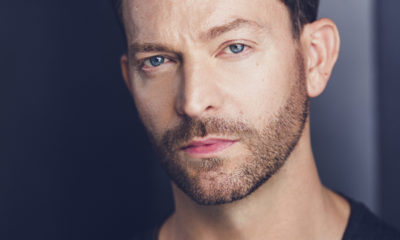Arts & Entertainment
‘Midsummer’ magic
Cleverly staged production transports action to the 1940s
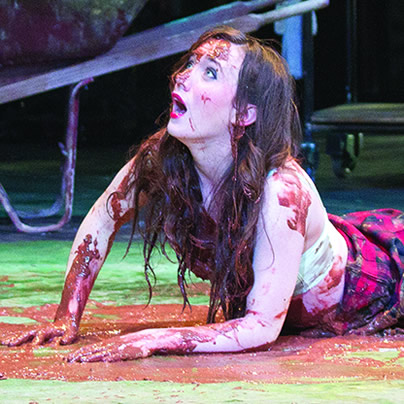
‘A Midsummer Night’s Dream’
Through Dec. 30
Shakespeare Theatre Company
Sidney Harman Hall
610 F Street NW
$43-$105
202-547-1122
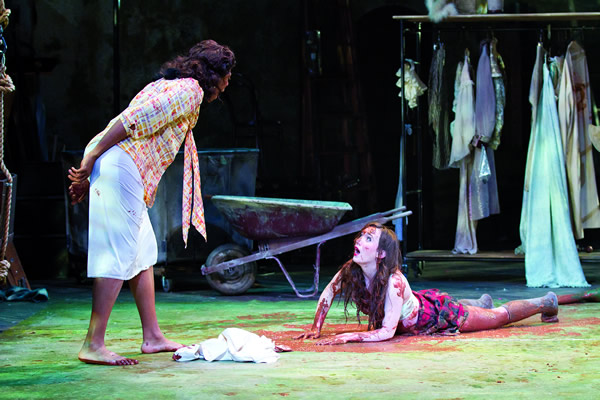
Christiana Clark as Helena and Amelia Pedlow as Hermia in Shakespeare Theatre Company’s production of ‘A Midsummer Night’s Dream.’ (Photo by Scott Suchman; courtesy of Shakespeare Theatre Company)
Shakespeare’s “A Midsummer Night’s Dream” brings together fairies, high-born Athenians and a sextet of skilled workmen with theatrical aspirations to create an improbable but magical world where even the most extreme situations end happily. In a visually exciting and extremely fun production currently playing at Shakespeare Theatre Company’s Sidney Harman Hall, director Ethan McSweeny keeps the old material fresh.
McSweeny’s take is appropriately magic-filled and newly theatrical. He sets the story in the 1940s inside an empty theater where possibilities are boundless. After all, as the program points out, Shakespeare premiered this play on a bare stage. With two balconies, a couple chandeliers, fly ropes, trap doors, Lee Savage’s beautiful set — a once grand theater — is essentially a blank slate, allowing the action to move convincingly (with the help of Tyler Micoleau’s skilled lighting) from Athens to an enchanted forest.
Cast members are equally versatile. Tim Cambell and Sara Topham appealingly play the comely ruling couple Theseus, Duke of Athens, and Hippolyta, Queen of the Amazons, as well as Oberon and Titania, King and Queen of the fairies. Adam Green splendidly transforms from Theseus’ oddly buttoned up assistant to literature’s mischief maker extraordinaire, Puck. Dressed in a corset and breeches, Green’s agile fairy nimbly traverses the set delighting in the mayhem he initiates without ever being too cutesy or grating. It’s a terrific performance.
“Dream” is a comic tale of young love, both requited and not. Hermia (Amelia Pedlow) cannot bear Demetrius (Chris Myers), the preppy boy her father insists she must marry. Instead she loves Lysander (Robert Beitzel), a folksy poet who is never without his acoustic guitar. Hermia’s best friend Helena (the excellent Christiana Clark), whose taste runs toward shopping and chocolates, loves Demetrius; but alas Demetrius loves Hermia. In order escape her father’s commands, Hermia and Lysander retreat to the woods.
Along the way, before all ends well, Hermia and Helena, clad only in their underthings, fall into a long, drawn out cat fight (staged wet and goopy by McSweeny). The boys (also stripped to their skivvies) get involved too. Puck watches from the sidelines perched in a theater balcony nibbling on popcorn. Invisible to the young lovers, he descends into the fray, cleverly egging on the battle. It’s a wonderfully well-rehearsed scene that comes off without a hitch.
“Dream’s” amusing subplot focuses on the rude mechanicals, a group of workers including a tinker and a tailor who are keen to perform a work of their own making (Shakespeare’s enduring slapstick-filled skit within the play) for the Duke and Queen. Led by Ted van Griethuysen as Peter Quince, the group of avid amateur thespians includes Robin Starveling (Christopher Bloch), Tom Snout (a dour Herschel Sparber), the slowwitted Snug (Robert Dorfman) and the wonderful David Graham Jones as Francis Flute who plays the mechanical’s enthusiastic ingénue. The group’s most eager member, Nick Bottom, is hilariously played by Bruce Dow as a total drama queen, more than ready for his close up.
McSweeney’s imagery is unforgettable: The show strikingly opens with the Duke (covered in medals) and his first lady (looking more than a little Evita-ish with a chic hat and carefully arranged fur piece), addressing their drab public from the palace balcony. There is the moving tableau featuring an ardent Titania and her disinterested paramour Bottom (who has been magically made into an ass) being pulled across stage by a team of young fairies as they lie in the gutted piano that serves as their bed. Then at the play’s close, there’s Puck making his apologies to the audience lit by the glow of a lone ghost light.
Jennifer Moeller provides a collection of impeccably realized costumes from the 1940s suits and gowns worn by the Athenians to Oberon and Titania’s romantic frayed remnants of court finery. And the fairies’ costumes: vintage foundation garments topped with odds and ends culled from an abandoned backstage.
With its classic storyline, inventive staging and delightful cast that handles the language and comedy more than ably, Shakespeare Theatre Company’s “Midsummer Night’s Dream” makes perfect holiday fare both for Bard aficionados and the uninitiated alike.
Theater
José Zayas brings ‘The House of Bernarda Alba’ to GALA Hispanic Theatre
Gay Spanish playwright Federico García Lorca wrote masterpiece before 1936 execution

‘The House of Bernarda Alba’
Through March 1
GALA Hispanic Theatre
3333 14th St., N.W.
$27-$52
Galatheatre.org
In Federico García Lorca’s “The House of Bernarda Alba,” now at GALA Hispanic Theatre in Columbia Heights, an impossibly oppressive domestic situation serves, in short, as an allegory for the repressive, patriarchal, and fascist atmosphere of 1930s Spain
The gay playwright completed his final and arguably best work in 1936, just months before he was executed by a right-wing firing squad. “Bernarda Alba” is set in the same year, sometime during a hot summer in rural Andalusia, the heart of “España profunda” (the deep Spain), where traditions are deeply rooted and mores seldom challenged.
At Bernarda’s house, the atmosphere, already stifling, is about to get worse.
On the day of her second husband’s funeral, Bernarda Alba (superbly played by Luz Nicolás), a sixtyish woman accustomed to calling the shots, gathers her five unmarried daughters (ages ranging from 20 to 39) and matter-of-factly explain what’s to happen next.
She says, “Through the eight years of mourning not a breeze shall enter this house. Consider the doors and windows as sealed with bricks. That’s how it was in my father’s house and my grandfather’s. Meanwhile, you can embroider your trousseaux.”
It’s not an altogether sunny plan. While Angustias (María del Mar Rodríguez), Bernarda’s daughter from her first marriage and heiress to a fortune, is betrothed to a much younger catch, Pepe el Romano, who never appears on stage, the remaining four stand little chance of finding suitable matches. Not only are they dowry-less, but no men, eligible or otherwise, are admitted into their mother’s house.
Lorca is a literary hero known for his mastery of both lyrical poetry and visceral drama; still, “Bernarda Alba’s” plotline might suit a telenovela. Despotic mother heads a house of adult daughters. Said daughters are churning with passions and jealousies. When sneaky Martirio (Giselle Gonzáles) steals the photo of Angustias’s fiancé all heck kicks off. Lots of infighting and high drama ensue. There’s even a batty grandmother (Alicia Kaplan) in the wings for bleak comic relief.
At GALA, the modern classic is lovingly staged by José Zayas. The New York-based out director has assembled a committed cast and creative team who’ve manifested an extraordinarily timely 90-minute production performed in Spanish with English subtitles easily ready seen on multiple screens.
In Lorca’s stage directions, he describes the set as an inner room in Bernarda’s house; it’s bright white with thick walls. At GALA, scenic designer Grisele Gonzáles continues the one-color theme with bright red walls and floor and closed doors. There are no props.
In the airless room, women sit on straight back chairs sewing. They think of men, still. Two are fixated on their oldest siter’s hunky betrothed. Only Magdelena (Anna Malavé), the one sister who truly mourns their dead father, has given up on marriage entirely.
The severity of the place is alleviated by men’s distant voices, Koki Lortkipanidze’s original music, movement (stir crazy sisters scratching walls), and even a precisely executed beatdown choreographed by Lorraine Ressegger-Slone.
In a short yet telling scene, Bernarda’s youngest daughter Adela (María Coral) proves she will serve as the rebellion to Bernarda’s dictatorship. Reluctant to mourn, Adela admires her reflection. She has traded her black togs for a seafoam green party dress. It’s a dreamily lit moment (compliments of lighting designer Hailey Laroe.)
But there’s no mistaking who’s in charge. Dressed in unflattering widow weeds, her face locked in a disapproving sneer, Bernarda rules with an iron fist; and despite ramrod posture, she uses a cane (though mostly as a weapon during one of her frequent rages.)
Bernarda’s countenance softens only when sharing a bit of gossip with Poncia, her longtime servant convincingly played by Evelyn Rosario Vega.
Nicolás has appeared in “Bernarda Alba” before, first as daughter Martirio in Madrid, and recently as the mother in an English language production at Carnegie Melon University in Pittsburgh. And now in D.C. where her Bernarda is dictatorial, prone to violence, and scarily pro-patriarchy.
Words and phrases echo throughout Lorca’s play, all likely to signal a tightening oppression: “mourning,” “my house,” “honor,” and finally “silence.”
As a queer artist sympathetic to left wing causes, Lorca knew of what he wrote. He understood the provinces, the dangers of tyranny, and the dimming of democracy. Early in Spain’s Civil War, Lorca was dragged to the the woods and murdered by Franco’s thugs. Presumably buried in a mass grave, his remains have never been found.

Cupid’s Undie Run, an annual fundraiser for neurofibromatosis (NF) research, was held at Union Stage and at The Wharf DC on Saturday, Feb. 21.
(Washington Blade photos by Michael Key)


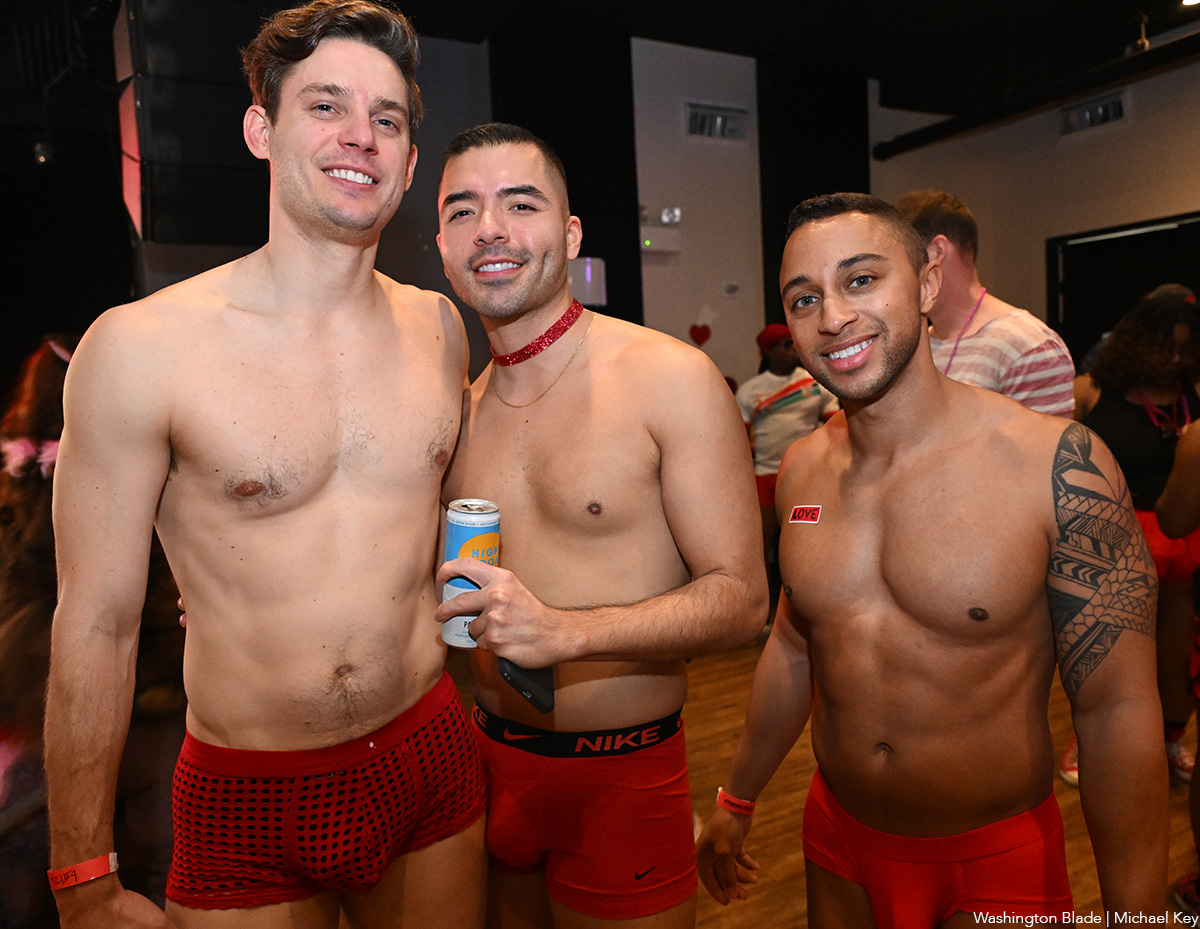





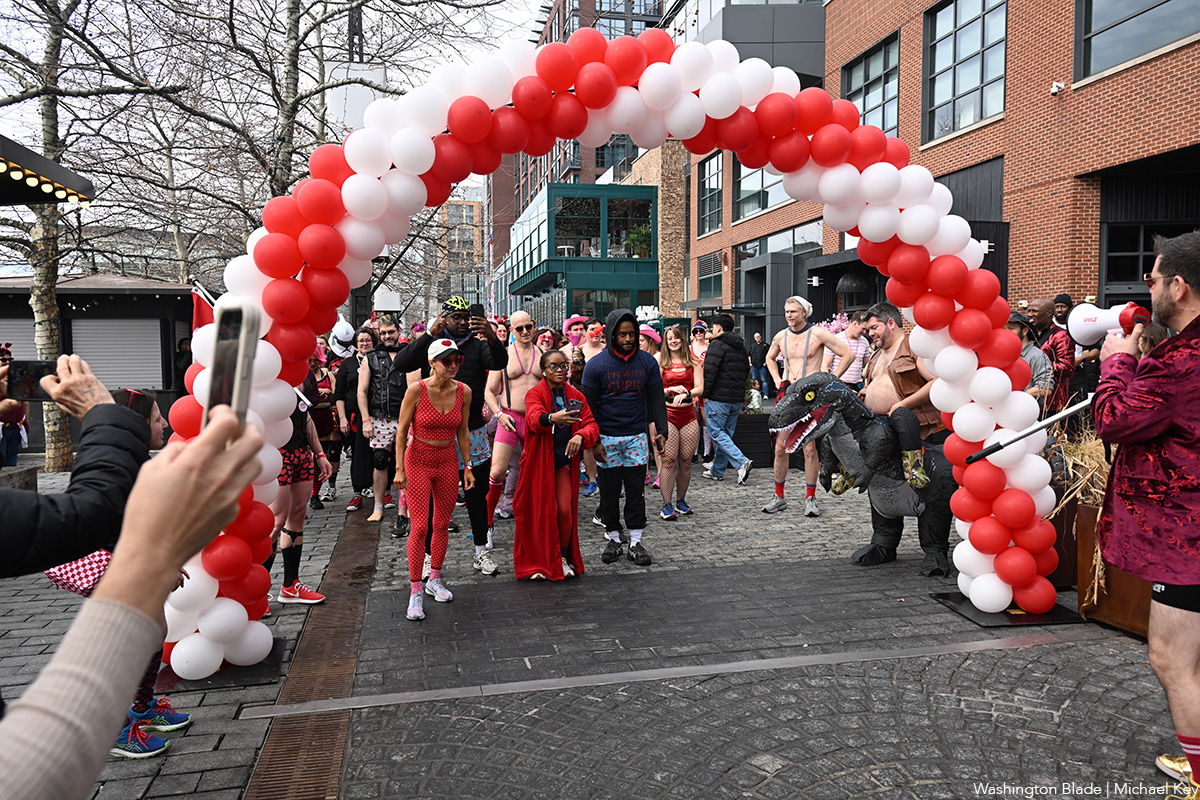
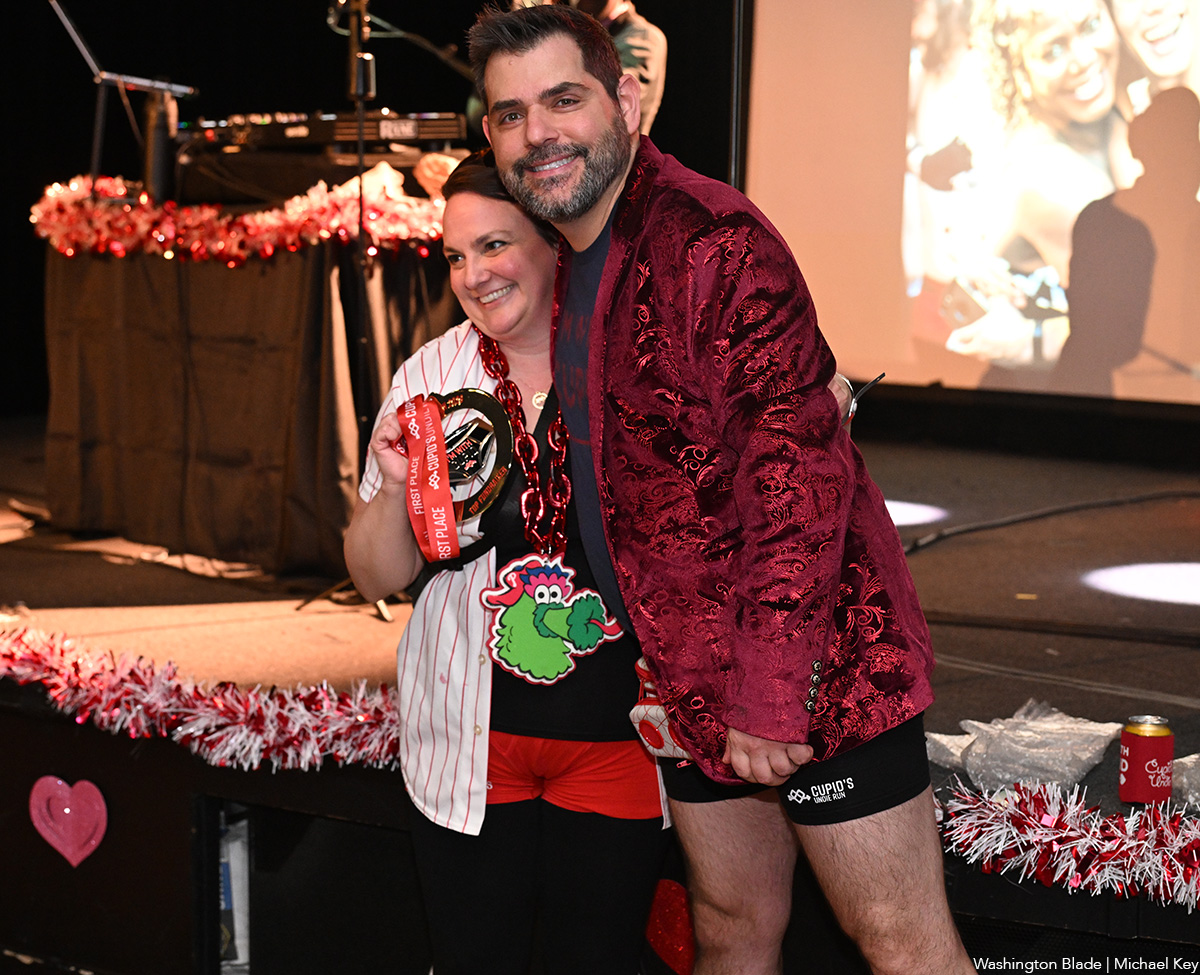
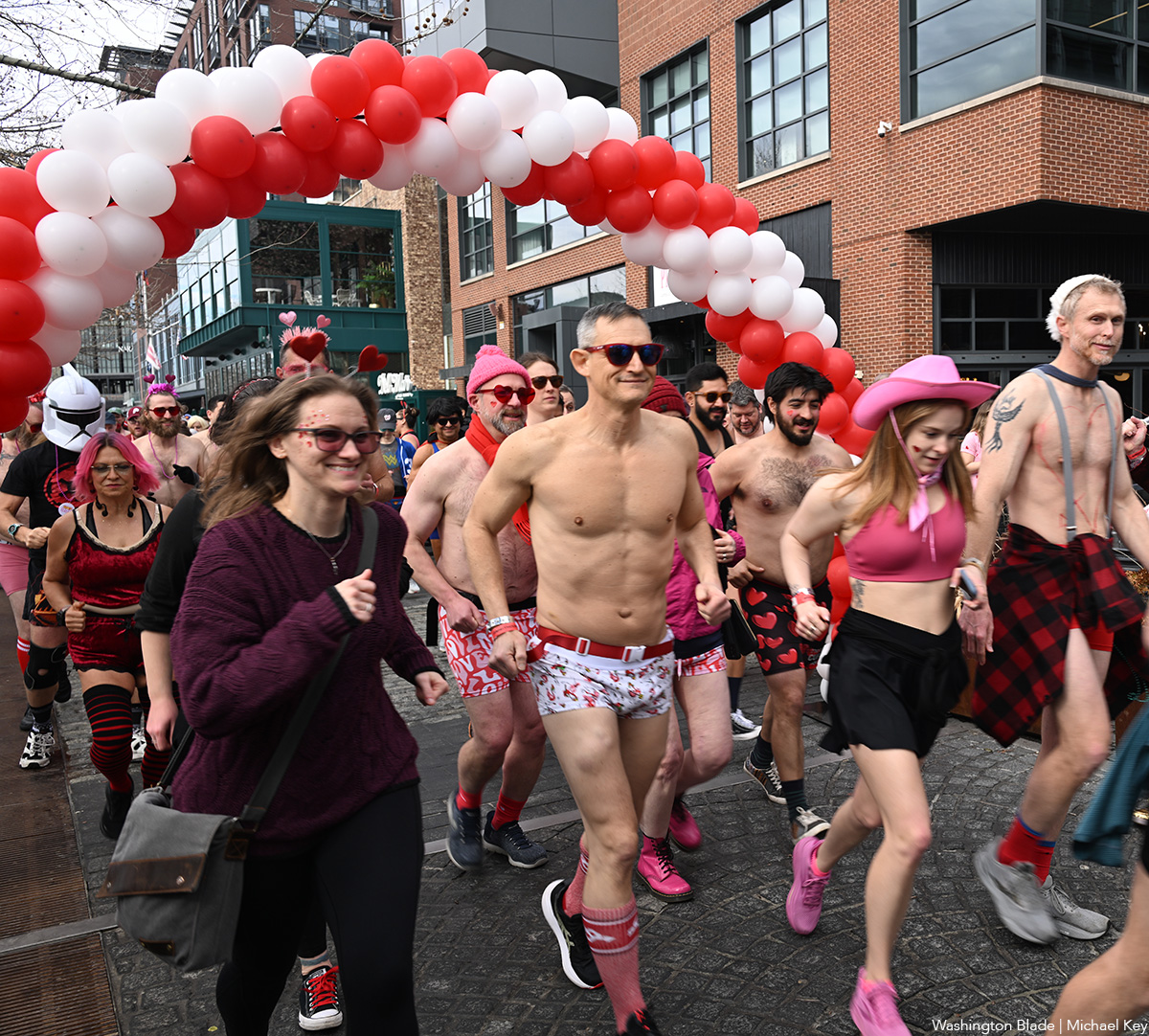

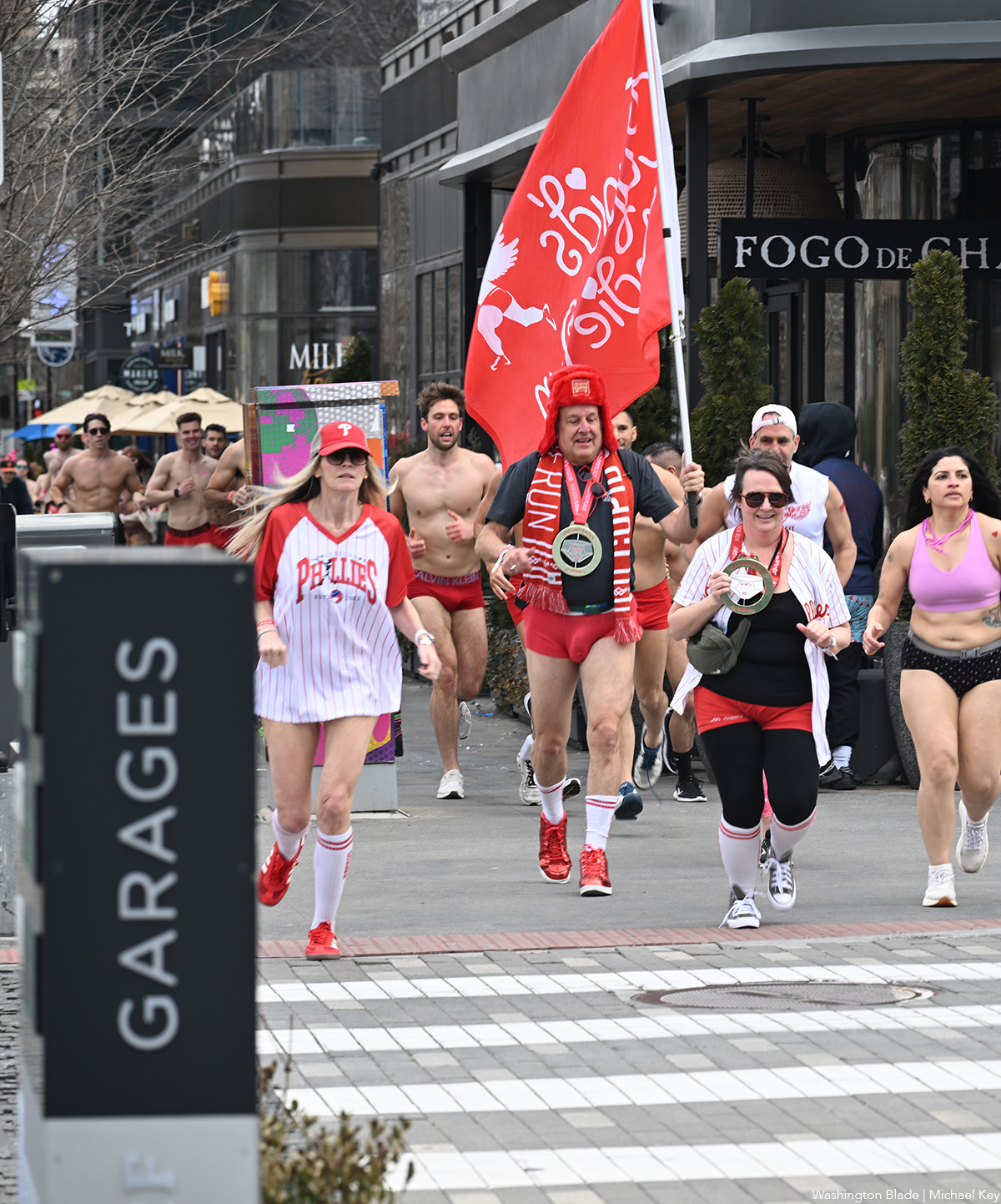

Sweat DC is officially expanding to Shaw, opening a new location at 1818 7th St., N.W., on Saturday, March 28 — and they’re kicking things off with a high-energy, community-first launch event.
To celebrate, Sweat DC is hosting Sweat Fest, a free community workout and social on Saturday, March 14, at 10 a.m. at the historic Howard Theatre. The event features a group fitness class, live DJ, local food and wellness partners, and a mission-driven partnership with the Open Goal Project, which works to expand access to youth soccer for players from marginalized communities.
For more details, visit Sweat DC’s website and reserve a spot on Eventbrite.



